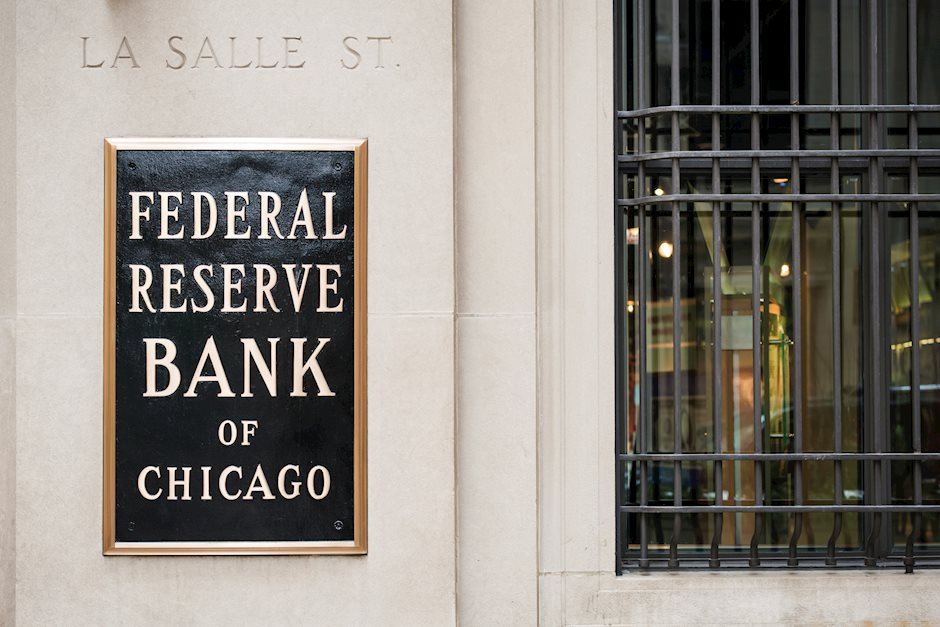When will the Fed throw in the towel on rate hikes?

The Federal Reserve finally stopped referring to inflation as “transitory” earlier this year and got serious about trying to control the painful rise in prices it has caused. Officials have jacked the Fed funds rate up by 3% since March.
Thus far they have been willing to inflict pain upon financial markets. The S&P 500 lost roughly 20% of its value since the end of March.
The aggressive tightening has also pushed the Federal Reserve note “dollar” higher relative to other major currencies.
Some of the pain inflicted by the Fed is being exported to Japan, China, and Europe. Other central banks have been slower to tighten monetary policy because economies there are even more fragile than in the U.S.
Lots of precious metal investors were betting on inflation. While they certainly got that right, in a perverse turn of events, it didn’t matter – at least not yet.
They didn’t anticipate Wall Street money managers, and the trading machines they oversee, would robotically focus on the dollar’s foreign exchange rate, and not the Consumer Price Index.
It appears higher paper gold and silver prices will have to wait for a trend reversal in the Dollar Index (DXY) or until speculators start worrying about actual inflation and reprogram their machines.
The DXY probably won’t be headed lower until Fed bankers change course on monetary policy.
The timing of the Fed’s pivot is one of the central questions for metal investors. What conditions would allow the central bank to declare victory over inflation and take its foot off the brakes? Could a new emergency even more dire than exploding prices force officials to alter course?
David Brady, CEO of Global Pro Traders, recently shared his thoughts regarding a Fed pivot on Palisades Gold Radio.
He thinks there is good reason to expect lower CPI numbers not too far ahead. Commodity prices have fallen dramatically over the past year. Lower costs for lumber, grains and base metals could soon show up in consumer prices.
Retailers are also reporting too much inventory. They have been caught by falling demand and can be expected to start cutting prices.
If CPI numbers move lower, currency traders will be positioning for the Fed to ease off on rate hikes.
However, a change in Fed policy is perhaps more likely to be driven by a catastrophe in financial markets than by falling consumer prices. Brady says there are warning signals all over the place.
There is trouble brewing in the junk bond markets, which have served as a canary in the coal mine. Financiers are demanding much higher interest rates, if they are willing to lend at all to junk rated companies. As a result, defaults are on the rise. Some of the earliest signs of the 2008 financial crisis came from the markets for high yield debt.
To be clear, junk rated companies aren’t the only institutions with trouble selling debt. The crisis in confidence now extends to sovereign nations.
Central banks got away with being the marginal buyers of sovereign debt for years. They picked up the slack when other investors got their fill. It does not look like they can get away with becoming the only buyers.
The long-absent “bond vigilantes” finally showed up in England earlier this month. The market for UK government bonds collapsed after private bond investors went on strike. They didn’t care for a plan by the newly installed government, headed by Elizabeth Truss, to finance tax cuts with more borrowing.
Brits learned the hard way that deficits do still matter, when the bonds went no-bid. Government pension plans nearly collapsed overnight.
The Truss government fell last week.
What happened in England must have come as a shock to U.S. Treasury Secretary, Janet Yellen.
The former Fed Chair, and senior architect in the construction of the largest debt bubble in world history, finally began pondering whether the same trouble is possible here. She said, “We are worried about a loss of adequate liquidity in the [U.S. Treasury] market.”
The list of crisis events which could force a pivot is long and seems to be getting longer by the day.
President Biden just moved the Army’s Airborne Division into eastern Europe, drawing America closer to a direct confrontation with the Russians. China is threatening Taiwan.
The most contentious mid-term election since the Civil War will take place in less than a month. Credit Suisse may not succeed in its emergency efforts to raise capital. Etc., etc.
The Fed will be called on to pivot, one way or another. Officials would almost certainly prefer to do it after they can declare victory over inflation, but they may not have the luxury of time.
To receive free commentary and analysis on the gold and silver markets, click here to be added to the Money Metals news service.
Author

Clint Siegner
Money Metals Exchange
Clint Siegner is a Director at Money Metals Exchange, the national precious metals company named 2015 "Dealer of the Year" in the United States by an independent global ratings group.

















